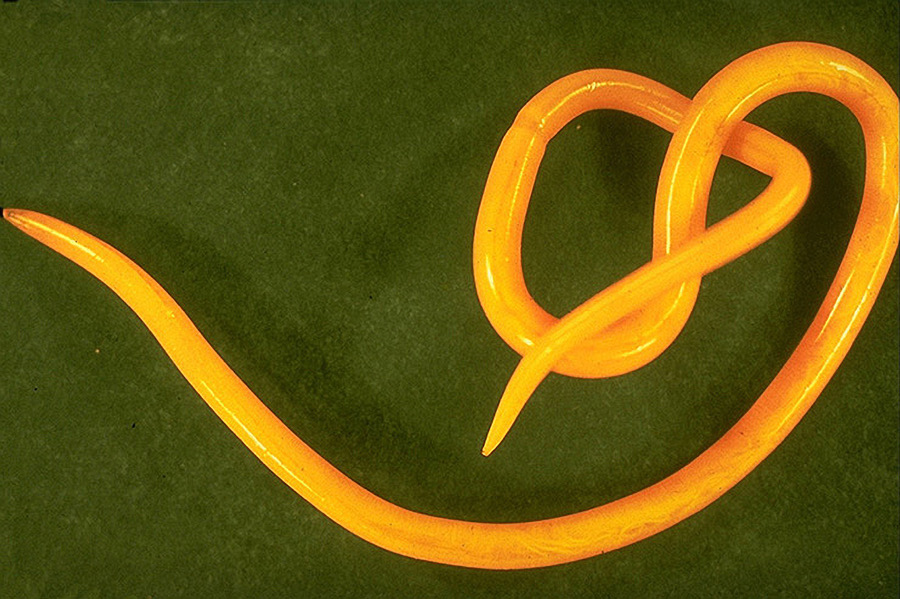Jianbin Wang Team Publishes on Chromosome Dynamics in Nematodes

by Randall Brown
Assistant Professor Jianbin Wang and his lab team in the Department of Biochemistry and Cellular and Molecular Biology focus their studies on the mechanism and function of programmed DNA elimination (PDE).
PDE is a process that violates the paradigm of genome integrity, selectively removing genetic material from the genome. However, hundreds of thousands of diverse species undergo PDE, suggesting that it must have evolutionary benefits.
Wang and colleagues published their most recent findings about PDE in Current Biology this May in an article titled “Chromosome fusion and programmed DNA elimination shape karyotypes of nematodes.” Their findings provide a biological explanation of the different numbers and sizes of chromosomes in various nematodes (roundworms), many of which are parasites of humans and other veterinary animals—enhancing our understanding of genome changes and the potential functions of PDE in these important parasites.
“Maintenance of genomes is essential for the survival and propagation of species,” said Wang. “We found that PDE is an ancient mechanism of genome dynamics—possibly one that was harnessed to sculpt genomes during evolution. PDE may also have been adapted as a way to regulate the expression of genes during reproduction, as many genes and regulatory elements are deleted, permanently silencing them in the somatic cells.”
In the new research, the team looked specifically at nematode karyotypes (a full set of chromosomes) by assembling the full genomes using high throughput sequencing methods and comparing many genomes from diverse nematodes through bioinformatic analysis.
“Chromosome fusion will lead to fewer germline chromosomes,” said Ryan Simmons, a post-doctoral researcher and lead author of the paper for the Wang Lab. “This could benefit the organisms since having fewer numbers of chromosomes may reduce errors generated during meiosis.”
An error such as mis-segregation of the chromosomes can lead to aneuploidy (abnormal number of chromosomes) and other abnormalities, so chromosome fusion can reduce the number of gametes that are not usable. This provides benefits for the overall survival and reproduction of the organism.
In contrast, a benefit of PDE could be to split fused chromosomes in the germline—cells that carry genetic information from one generation to the next—to many smaller chromosomes in the somatic cells.
“Even though these fused chromosomes may be beneficial to meiosis, they may cause problems in gene expression and regulation in the somatic cells and thus need to be removed,” said Simmons. “Thus, nematodes with PDE and chromosome fusions seem to have taken advantage of both the fused germline chromosomes and split somatic chromosomes.”
To learn more about the function of PDE, the Wang Lab looks to create mutant nematodes that do not experience the process.
“Although a nematode that fails to fully stop PDE is yet to be established in the lab, we are working on a free-living nematode model on which we have created several mutants that fail to eliminate some portions of the normally eliminated DNA,” said Wang. His team published about this work in 2022, also in Current Biology. “These mutant worms survived, and their phenotypes are currently being evaluated in the lab.”
Meanwhile, the recently published work by Wang’s team has already been highlighted in a commentary on genome organization by colleagues at the Institute of Human Genetics, CNRS, and University of Montpellier, Montpellier, France.